
1. Fangbei WeChat Debugger
The WeChat debugger is a tool developed by Fangbei Studio for the development and debugging of the WeChat public platform interface. It has Token verification, simulated following and unfollowing, and sending text. /Picture/Voice/Video/Location/Link, simulation event sending and other functions. The prototype is Weiqing's Emulator.
The WeChat debugger currently does not support use under the IE browser. Please download the Chrome browser or download the Firefox browser.
The address of the WeChat debugger is http://debug.fangbei.org/.
The interface is as follows
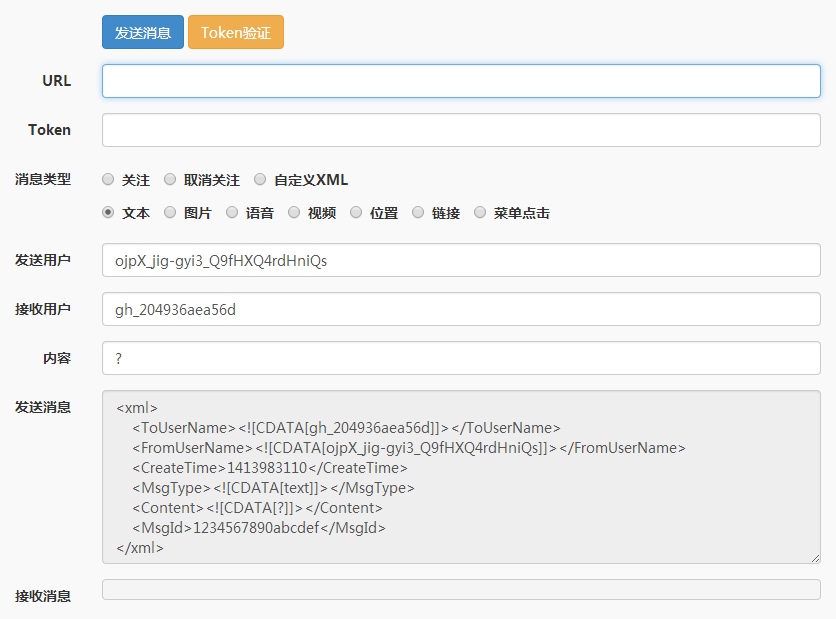
In the URL input box Fill in the interface URL and Token of the WeChat public account in the and Token input boxes respectively.

Click the "Token Verification" button. If the Token verification is successful, it will prompt that the verification is successful. Message box. If the Token verification fails, a verification failure message box will be prompted.
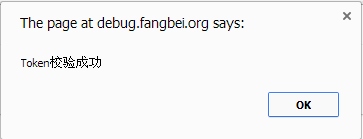
Select the message type, such as "Text", and the parameters of the message type will be listed , fill in the parameters to be sent in each parameter, and then click the "Send Message" button.
The sending message box will display the XML sent this time, and the receiving message box will display the received XML data.
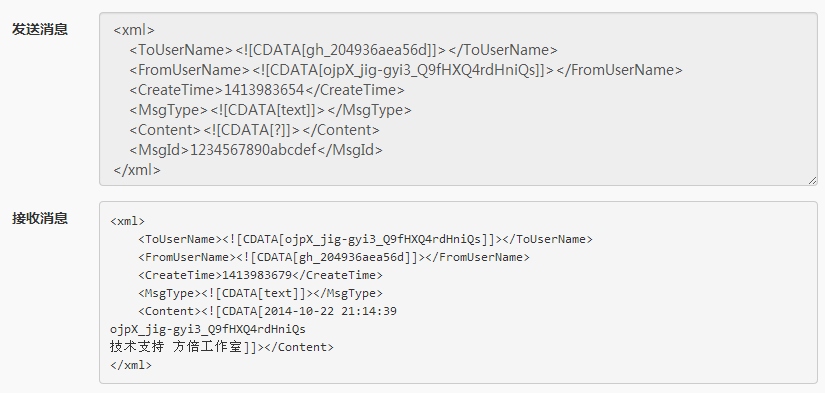
At the same time, the WeChat effect preview will also be displayed on the right side.
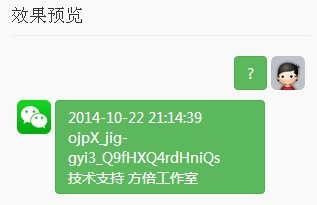
Enter the address https://mp.weixin.qq.com/debug /,
Select the type you want to debug in the interface type. Here we debug basic messages, so choose Message interface debugging
Select the type you want to debug in the interface list, here we take text messages as an example
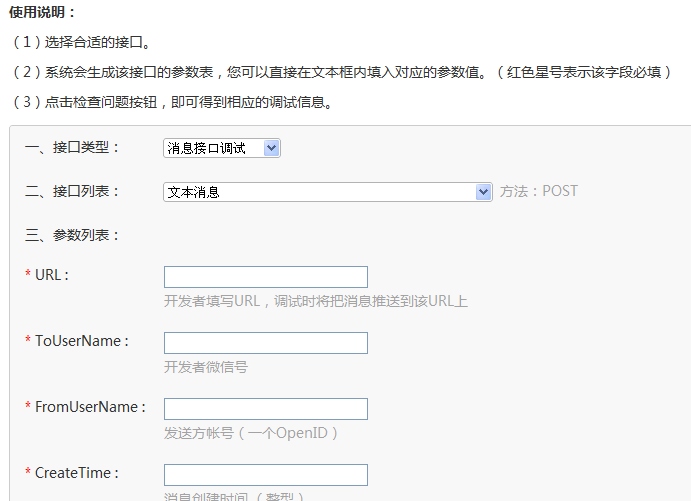
Here we mainly fill in the URL and Content.
URL is the interface address we developed ourselves, and Content is the text message content to be sent to this interface address. ,
Fill in the following:
URL:http://discuz.comli.com/test.php : 方倍工作
The following other parameters can be filled in casually, because we just Test content,
* ToUserName : 开发者微信号 * FromUserName : 发送方帐号(一个OpenID) * CreateTime : 消息创建时间 (整型) * MsgId : 消息类型(消息id,64位整型)
If you don’t know what to fill in, you can fill it in with the data in the xml below
<xml> <ToUserName><![CDATA[gh_82479813ed64]]></ToUserName> <FromUserName><![CDATA[ojpX_jig-gyi3_Q9fHXQ4rdHniQs]]></FromUserName> <CreateTime>1412079737</CreateTime> <MsgType><![CDATA[text]]></MsgType> <Content><![CDATA[方倍工作室]]></Content> <MsgId>6064836289959967853</MsgId></xml>
After filling in, as shown below

Click the "Check Question" button
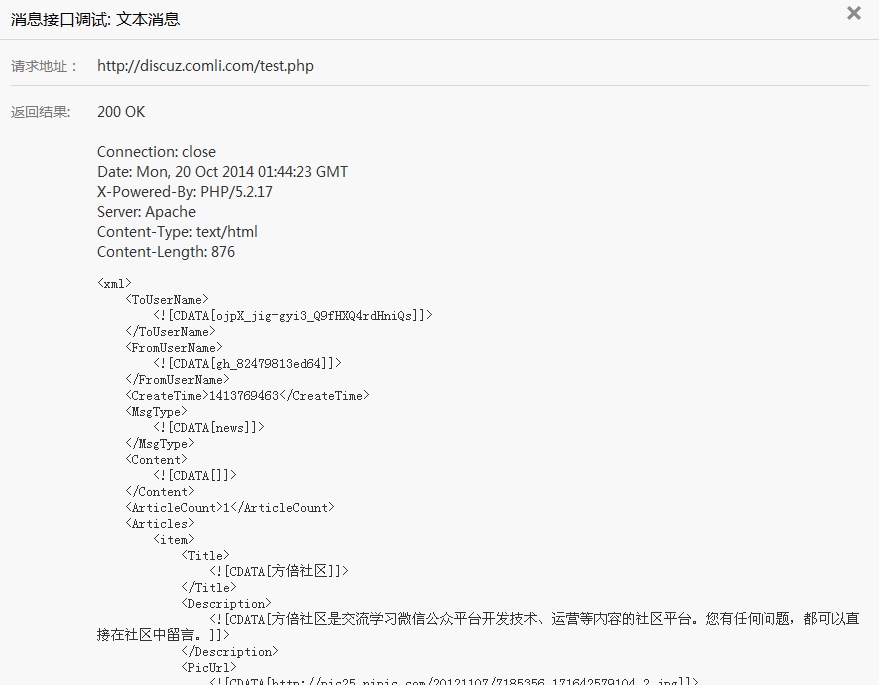
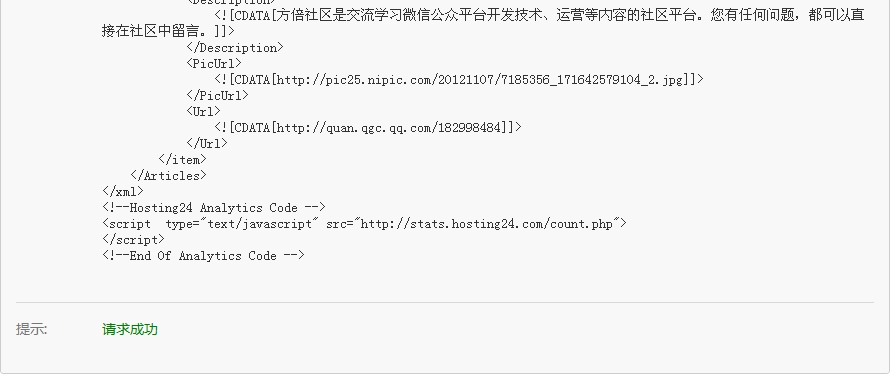
The last line prompts that the request was successful, indicating that the data was successfully sent and received. You can check whether the returned data is consistent with your own program interface.
Open the WeChat web version address https://wx.qq.com/ in the browser, and a QR code will be displayed on the page
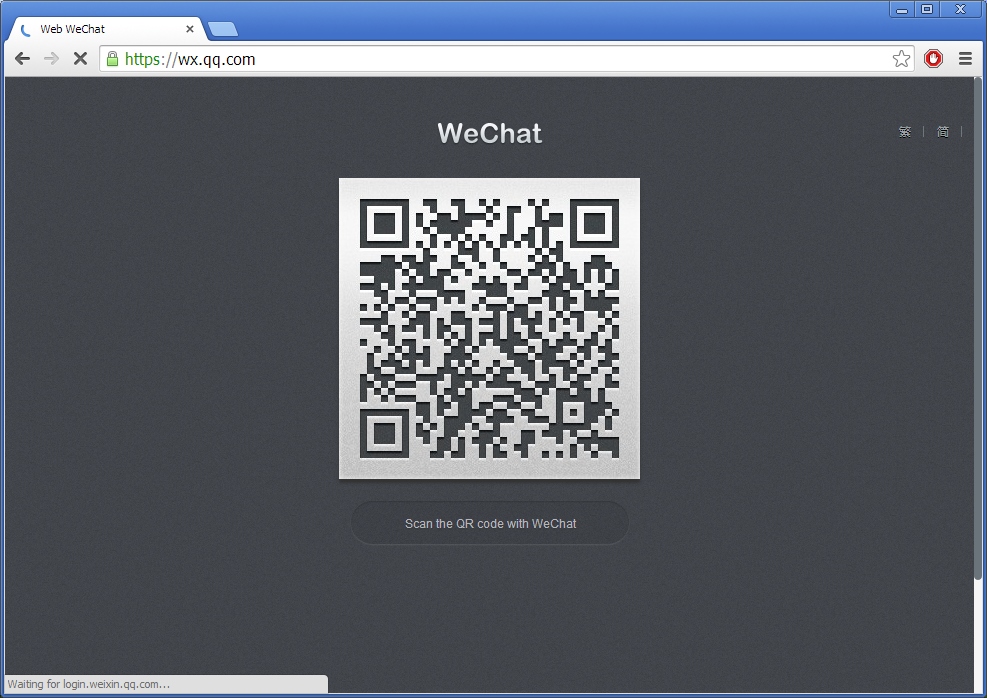
Use the scan function of WeChat on your phone to scan this QR code, and then WeChat on your phone will display the following
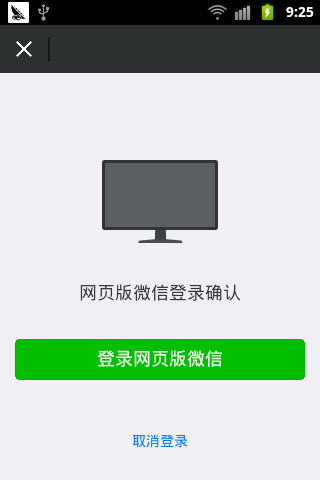
Click the "Log in to the web version of WeChat" button, and the following will be displayed on your phone

You can see the words "Webpage WeChat has logged in" at the top
The interface with the mobile version of WeChat will appear in the browser, double-click to open the page that needs to be debugged For public accounts, just send the corresponding keywords for testing. As shown below
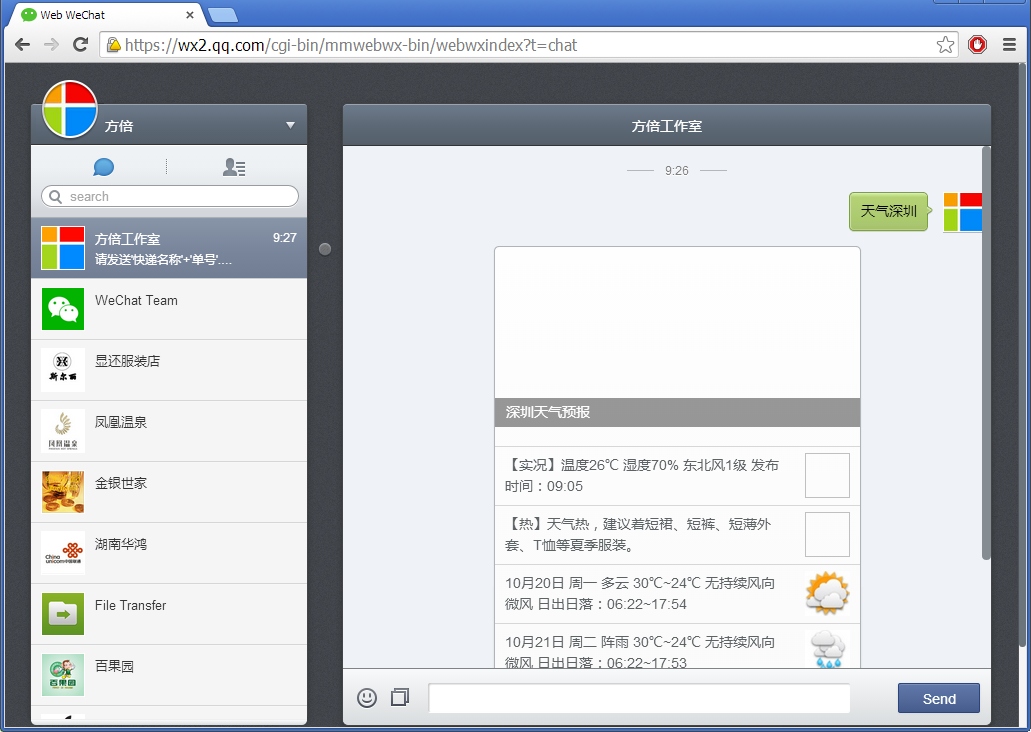
#For more WeChat public platform development and debugging methods, please pay attention to the PHP Chinese website for related articles!




